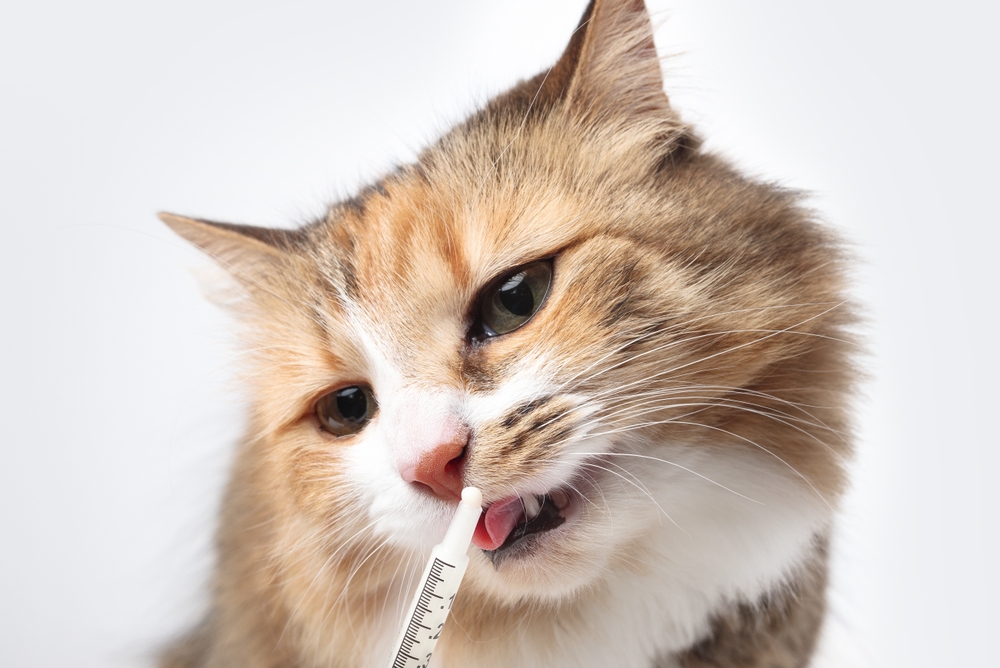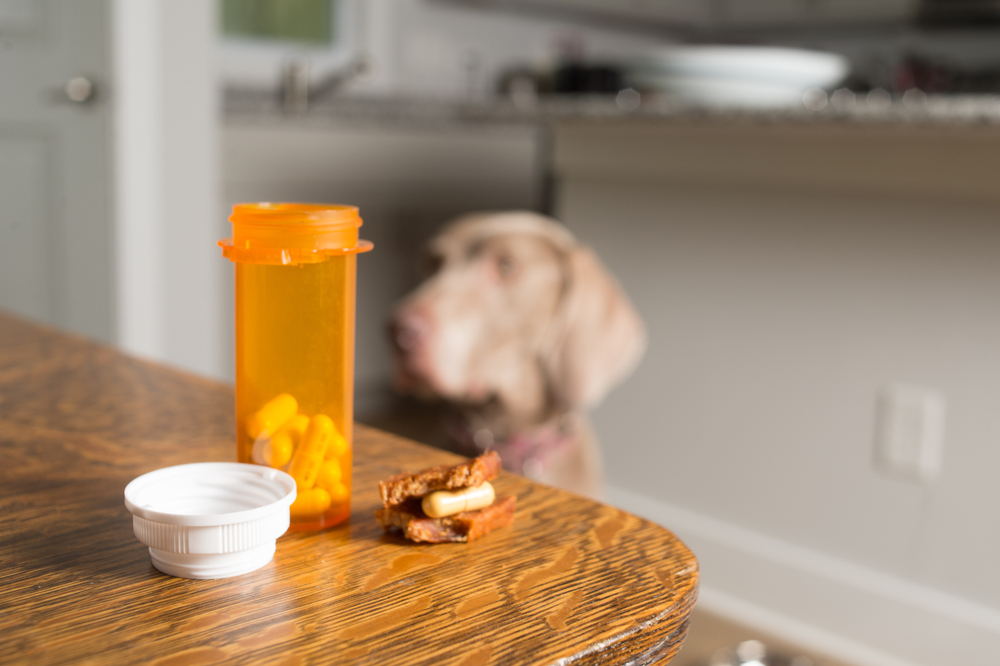Medicating pets can be a challenging task. Whether your pet disappears at the sight of a medicine vial, fights you tooth and nail to avoid medication, or quietly spits out the pills you hid in their food, failing at this seemingly simple task can be frustrating.
The Memorial Villages Animal Hospital team knows that pet owners want to see their pets improve, but don’t always have the tools or knowledge to make that happen. We gathered expert tips from our veterinary team to make medicating your difficult pet a breeze for you—and for them.
#1: Remain calm and patient with your pet
Try to keep your cool around your pet, no matter how frustrated you get. Pets can sense anxiety and anger, and they’ll feed off your negative energy and make the situation worse. Maintaining your composure ensures your pet feels relaxed and more accepting of the medication process. Understanding that your pet isn’t being purposefully difficult can help reinforce, rather than damage, your bond.
#2: Check in with your veterinarian
If you’re struggling to administer a prescribed medication, check in with our veterinary team, who can provide specific instructions tailored to your pet’s needs or suggest treatment alternatives that may be less stressful for your pet. For example, our veterinarians may be able to provide injectable medication instead of tablets or long-acting ear medication, if appropriate.
#3: Ask for a demonstration
If you haven’t medicated your pet before or suspect it will be difficult and you’re asked to administer medication at home, ask our veterinary team for a demonstration before you leave the hospital. Seeing the proper technique and practicing it under a professional’s supervision can boost your confidence.
#4: Hide medications in food
This is an old trick that works for many, but not all, pets. The smellier and tastier the food and hungrier your pet, the more likely they’ll eat it without a second thought. Hot dogs, cheese, lunch meat, canned food, peanut butter, and commercially made pill pockets may work, but don’t be afraid to get creative as long as you avoid toxic ingredients, such as xylitol-sweetened peanut butter.
#5: Learn gentle pet restraint
If you can’t get your pet to eat their medication or you need to administer an oral liquid, eye drop, or ear ointment, you’ll need to learn how to restrain them without stress or injury. Wrapping cats in a towel to create a “purrito” is usually effective, but takes some practice. For dogs, hold them close and use your own body as a backstop to prevent wiggling. Because each pet is an individual, ask a veterinary nursing team member who is familiar with your pet for guidance and tips.
#6: Use positive reinforcement
Positive reinforcement is a powerful tool that works for short- and long-term medication administration. Always pair medication time with a strong reward, such as a treat, favorite toy, or brushing session. If you have to medicate your pet daily, build this into your daily routine, so your pet knows exactly what to expect and when. As long as you keep each experience positive, they will eventually look forward to it.
#7: Get professional help
If you’re truly struggling or your physical limitations prevent you from safely medicating your pet, look into hiring a medically savvy pet sitter, dog walker, neighbor, or family member who can come to your house and help. Alternatively, if you live near the veterinary hospital, you can bring your pet in for daily medication administration.
#8: Try compounded medications

Compounded medications, which are made to order in specialized facilities, aren’t always as efficient as bulk-manufactured medications, but when all else fails, they are better than not medicating your pet at all. If you’re struggling with a particular medication form, you may be able to try a different version, such as a liquid, trans-dermal, chewable, or quick-dissolve, that we can order for you through a compounding pharmacy.
Medicating difficult pets requires patience, creativity, and a collaborative approach with the veterinary team. Safe and effective medication administration is possible when we put our heads together to find a solution that works for everyone. For a medication administration demonstration or to learn more about alternative medicating strategies, contact our Memorial Villages Animal Hospital team.









Leave A Comment